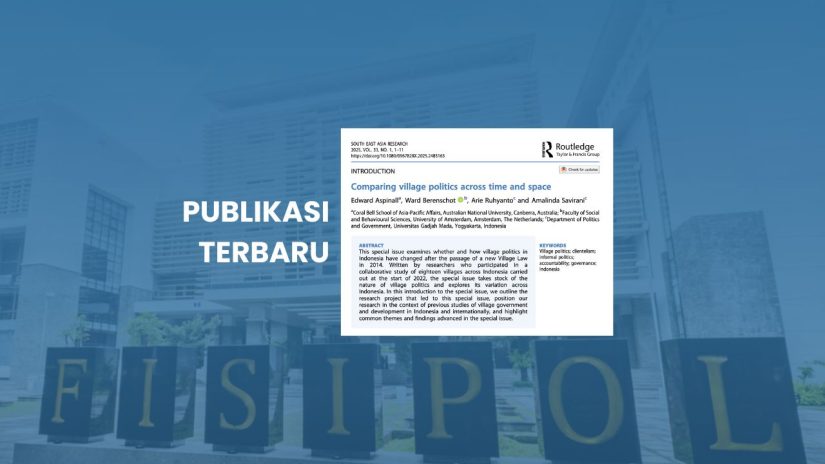
Two lecturers from the Department of Politics and Government (DPP), Faculty of Social and Political Sciences (FISIPOL) Universitas Gadjah Mada, Arie Ruhyanto and Amalinda Savirani, have once again achieved academic recognition through their latest publication in the reputable Asian Journal of Political Science, published by Routledge (Taylor & Francis). The article, titled “Comparing Village Politics Across Time and Space,” was co-authored with Edward Aspinall and Ward Berenschot.
The article offers a profound comparative study of village politics in Indonesia, examining not only geographical differences but also temporal changes. The authors explore how practices of power, patronage relations, and political participation at the village level have evolved across different periods and regions.
Using historical and ethnographic approaches, the article explains how national socio-political shifts interact with local structures, producing diverse patterns of village power while maintaining strong underlying continuities.
What makes this research compelling is the way it highlights the diversity of local politics in Indonesia, demonstrating that villages are not merely administrative units but also complex political arenas. The study provides fresh insights into how informal power operates, who holds influence in villages, and how citizens engage in everyday political processes.
This publication is a valuable contribution to the understanding of local democracy and governance, offering perspectives that can inform policies for more inclusive and participatory village development.
The journal article can be accessed via the following link.
Relevant SDGs (Integrated in the Narrative)
This study resonates strongly with several Sustainable Development Goals (SDGs):
-
SDG 16 – Peace, Justice, and Strong Institutions: by deepening understanding of local governance and promoting democratic, accountable practices at the grassroots.
-
SDG 10 – Reduced Inequalities: by analyzing who holds influence and how citizens—especially marginalized groups—participate in village politics.
-
SDG 11 – Sustainable Cities and Communities: by recognizing villages as dynamic political spaces essential to building inclusive and sustainable local governance.
